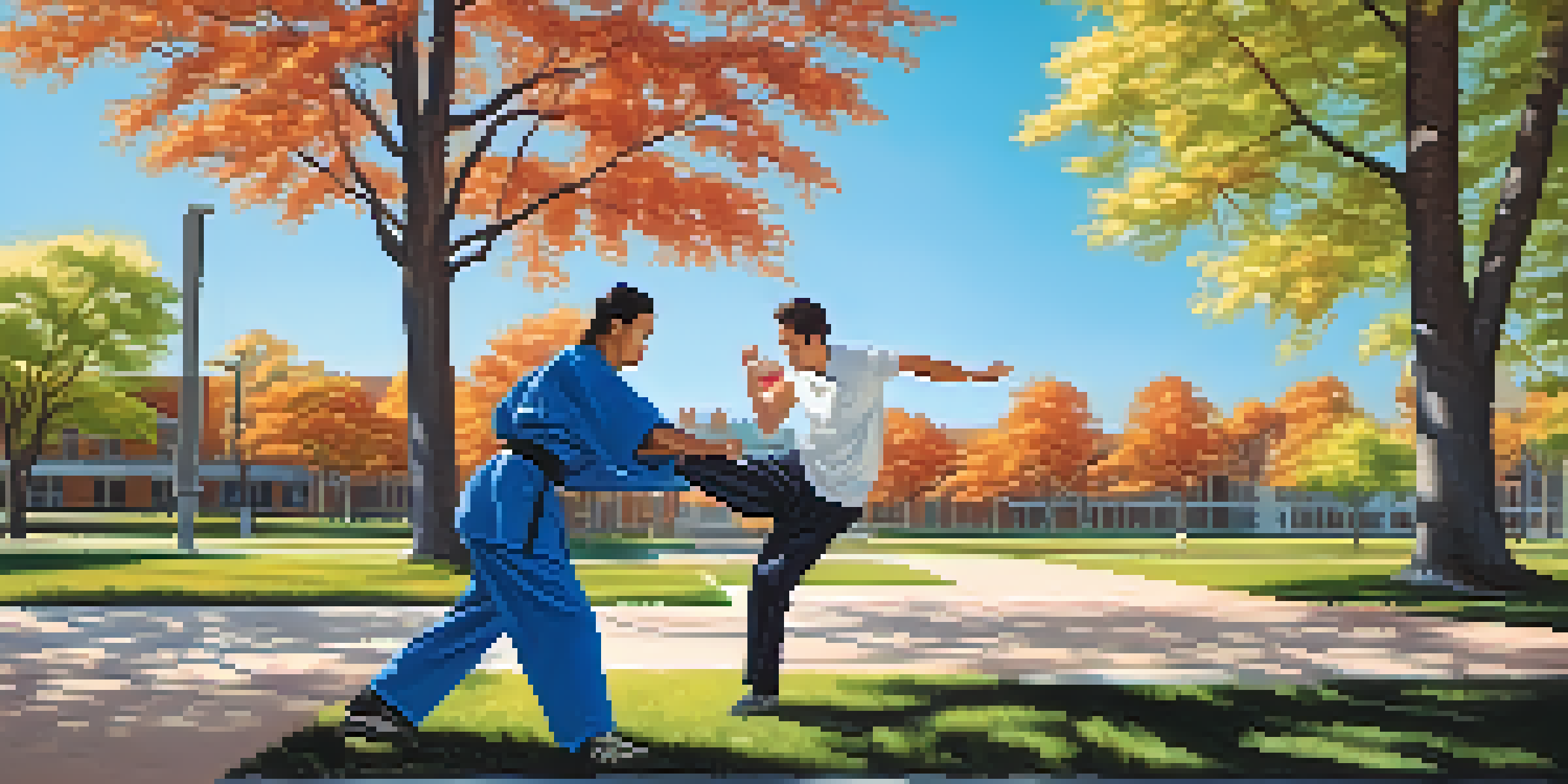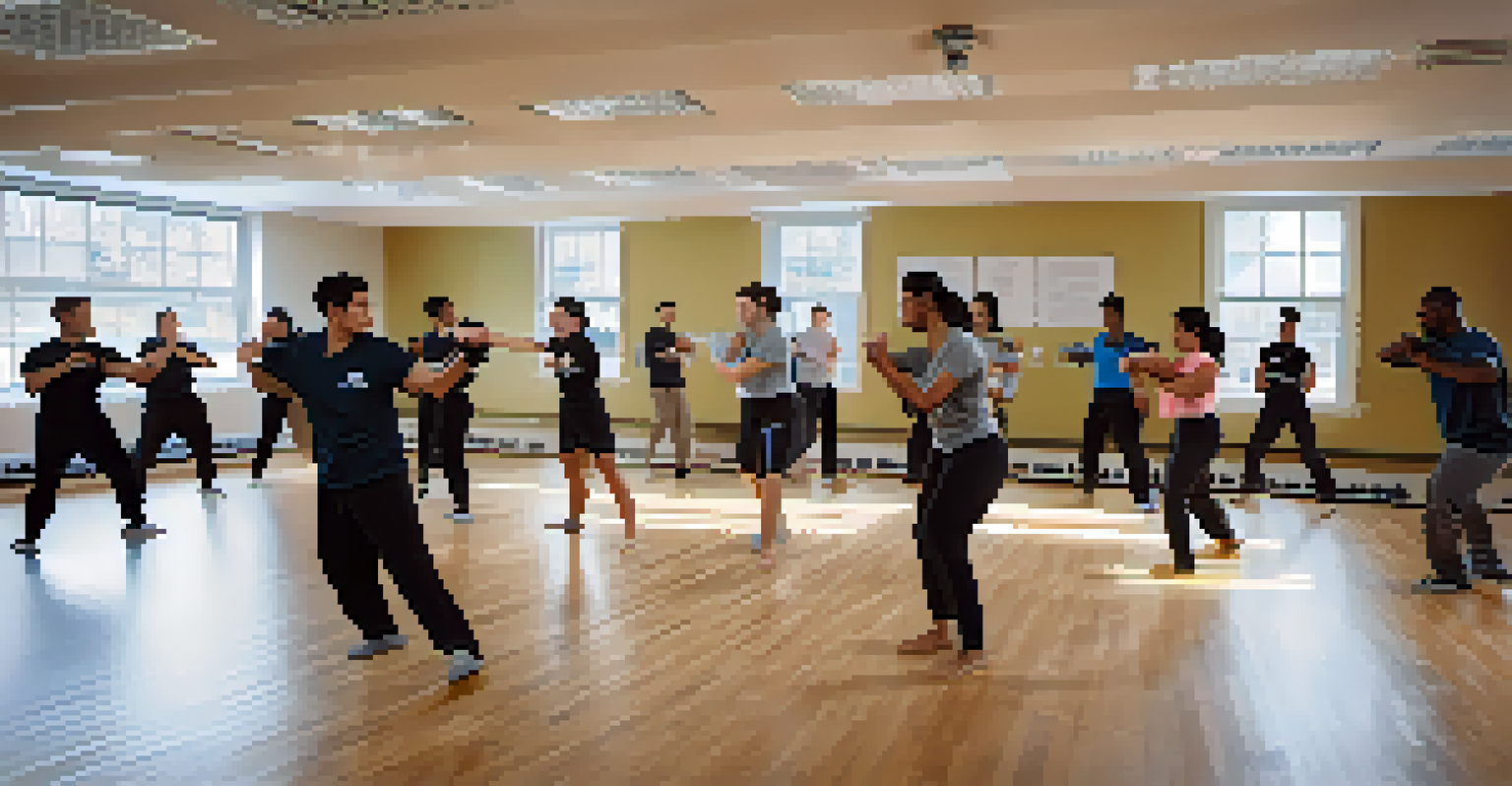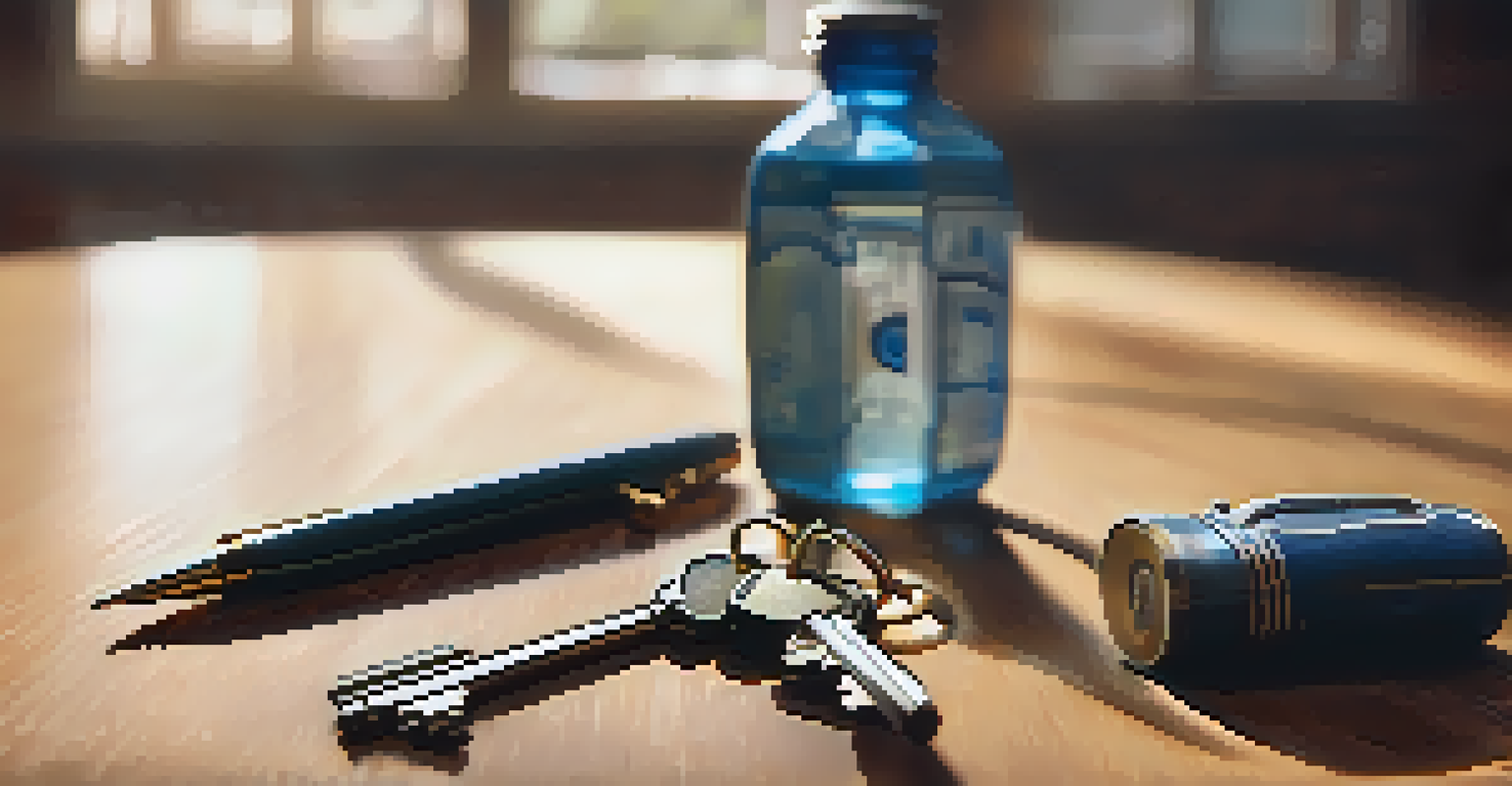Essential Self Defense Techniques for College Students

Understanding the Importance of Self Defense for Students
Self-defense is not just a skill; it’s a crucial strategy for college students navigating campus life. As students often find themselves in unfamiliar environments, knowing how to protect oneself can significantly boost confidence and safety. It's about being proactive and prepared, rather than reactive when danger arises.
The best defense is a good offense.
Many college campuses are generally safe, but incidents can happen anywhere. By understanding basic self-defense techniques, students can enhance their situational awareness and make informed decisions about their safety. This awareness isn't meant to instill fear, but rather to empower students to feel in control of their surroundings.
Moreover, self-defense training can foster a sense of community among students. Engaging in classes or workshops together can build bonds and create support networks, making everyone feel more secure. After all, safety is often a shared responsibility.
Situational Awareness: The First Line of Defense
Before we dive into techniques, let's talk about situational awareness. This means being conscious of your environment and recognizing potential threats before they escalate. By staying alert and avoiding distractions, like your phone, you can better assess what’s happening around you.

For example, if you notice someone following you or a group of people acting suspiciously, trust your instincts. It’s often better to change your route or seek a crowd than to confront a potential threat directly. Remember, your intuition is a powerful tool in these situations.
Self-Defense Boosts Student Safety
Mastering self-defense techniques empowers students to navigate campus life with confidence and security.
Practicing situational awareness can be as simple as scanning your surroundings while walking to class. This habit not only keeps you safer but also helps you become more comfortable in recognizing what feels 'normal' in your environment.
Basic Physical Techniques for Self Defense
While awareness is critical, knowing some basic physical techniques can be invaluable. Techniques like a simple elbow strike or knee kick can help you create space between you and an attacker. These moves are often easier to remember and execute under stress than more complex maneuvers.
Self-defense is not just a right; it's a responsibility.
For instance, if someone grabs your wrist, you can rotate your arm towards them while stepping to the side. This not only breaks their grip but also puts you in a better position to escape. Practicing these moves with a partner can make them feel more natural when you need them.
Remember, the goal of self-defense isn't to engage in a fight but to escape to safety. Think of these techniques as tools in your toolkit – you might not need them often, but having them can make a world of difference when the time comes.
Verbal De-Escalation Strategies
Not every confrontation requires physical action; sometimes, words can be your strongest weapon. Verbal de-escalation involves using calm, assertive language to diffuse a tense situation. This could be as simple as saying 'I need you to back off' in a firm voice.
Using clear, direct language can help establish boundaries and signal to the other person that you're not an easy target. It’s also essential to maintain a confident posture, as body language plays a significant role in communication. Standing tall and making eye contact can project strength.
Situational Awareness is Key
Being aware of your surroundings can help you identify potential threats and avoid dangerous situations.
Additionally, practicing these verbal skills can be beneficial in everyday interactions, too. Whether it's addressing a rude classmate or a stranger, the confidence you build through de-escalation can translate to various aspects of college life.
Using Everyday Objects for Self Defense
Sometimes, the best self-defense tools are the ones you already carry. Everyday items like keys, pens, or even a water bottle can be used creatively to defend yourself. For example, holding your keys between your fingers can form a makeshift weapon if you need to strike someone.
Your phone can also serve multiple purposes beyond communication. Not only can it be used to call for help, but having a personal safety app can alert friends or authorities if you're in danger. Think of it as an extension of your self-defense strategy.
Being resourceful with common items not only prepares you for unexpected situations but also enhances your confidence. The more you think about how to use what you have, the more empowered you'll feel in handling various scenarios.
The Role of Self Defense Classes
Participating in self-defense classes can provide a structured environment to learn and practice techniques. Many colleges offer these classes, which often focus on both physical skills and mental preparedness. They can be a fun way to meet new people while gaining valuable knowledge.
Classes usually cover a range of strategies, from basic moves to conflict resolution, ensuring you leave with a well-rounded skill set. Moreover, practicing with instructors and fellow students can build your confidence and help you internalize the techniques.
Everyday Items as Defense Tools
Common objects like keys and phones can be creatively utilized for self-defense, enhancing personal safety.
Beyond the physical skills, self-defense classes often foster a supportive community. This camaraderie can be vital, as knowing others are also committed to safety can encourage everyone to look out for one another on campus.
Creating a Personal Safety Plan
Developing a personal safety plan is an empowering step towards self-defense. This plan can include identifying safe routes to class, knowing where campus emergency services are located, and having a list of trusted friends you can contact in an emergency. The more prepared you are, the more confident you'll feel.
Consider including strategies for different scenarios, such as being approached by someone suspicious or feeling unsafe in a party setting. Having a clear plan can help you think more clearly in stressful situations and reduce panic.

Additionally, regularly reviewing and updating your safety plan as circumstances change is crucial. College life can be unpredictable, and staying adaptable ensures you’re always ready to handle whatever comes your way.